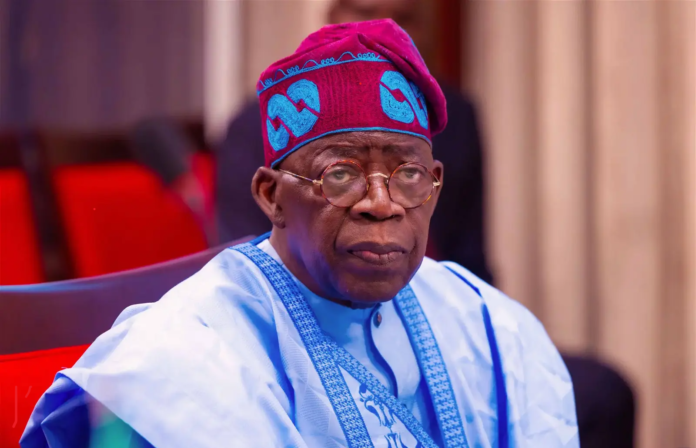Senator Ali Ndume, the Chief Whip of the Senate, has praised President Bola Tinubu for rescinding the 0.5% cybersecurity levy that the Central Bank of Nigeria, or CBN, had previously declared.
He described the president as a ‘listening, responsive, and reactive person’ who is concerned with the problems of the people, and he said that his decision is not surprising.
In an interview with Arise Television, Ndume made this claim.
Remember that all electronic bank transactions must include a deduction for the cybersecurity levy. However, Nigerians harshly criticized the policy.
Speaking about the policy, Ndume stated, ‘The president’s request to halt the cybersecurity levy is anything I anticipated from him given how long we’ve known each other and how attentive, receptive, and reactive he is.
Read Also: PDP Warns APC Against Forceful Takeover Of Rivers State
Therefore, it should come as no surprise that he gave the order to suspend it right away. Second, we should revisit the legislation at the drawing board since it is a positive step that the President has taken.
Cybercrime was the first issue that needed to be handled when this administration took office.
Ensuring the safety and well-being of the populace is one of the goals of government, as stated in section 14(2) of our constitution.
‘A crucial component of security is cybercrime, which is why is the reason the government acted quickly to review the 2015-signed enabling law,
strengthen it, and grant additional authority to the organizations tasked with carrying out that duty in order to guarantee effectiveness and combat the severe cybercrime that is destroying the nation and tarnishing our reputation.
But the congressman claimed that because it was enacted quickly, several important aspects were missed.
Ndume also urged Nigerians to study the legislation and make any feasible, workable recommendations that could aid in the nation’s fight against cybercrime.
However, I must admit that we were pressed for time and were unable to examine the specifics of the matter until the CBN stated that declaration.
Furthermore, their analysis was flawed, and it is evident that Nigerians’ response was unfavorable.
Naturally, this is to be expected given the current state of affairs, which places a heavy weight on the average person and low-income earners.
The government does not intend to add to the already heavy burdens facing the impoverished or Nigerians in general.
And for that, I would like to take this opportunity to thank the president. I also want to implore Nigerians to concur with the administration that there is a need for significant legal upgrades regarding cybercrime.
Additionally, I examined the legislation following the outcry from certain Nigerians and, to be honest, found a few gaps here and there item required attention.
Nigerians are concerned because, for instance, the fee ought to be 0.5% of the electronic transaction’s value, but the law is vague about who will be in charge of it.
However, from what I could see in the CBN circular, section 44(2) makes it quite plain which organizations or companies are responsible for paying the charge.
‘When laws are formed, problems arise and will always arise, for this reason, laws are periodically changed.
I thus expect you to revisit the law—thank goodness, the amendment is just six pages long—and thoroughly examine it in order to provide a recommendation for what constitutes appropriate.
Cybersecurity Levy Law Rescinded
‘The good news is that everyone has acknowledged, that the nation’s reputation is being damaged by cybersecurity issues.’



